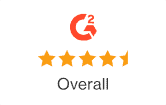“Corporate investigators know how much their leadership worries about bad behavior on the part of employees. With Case IQ, everyone can breathe easier. You know you’ve got the tools you need to handle things the right way."
- Meric Bloch, Certified Investigations Coach
“With increasingly stringent federal policies around record-keeping and due diligence, compliance professionals are under real pressure to demonstrate consistency and rigor throughout their case management processes. Case IQ delivers a rock-solid solution.”
- Tom Fox, "The Compliance Evangelist"
“Every good HR professional I know is passionate about creating a ‘speak up’ culture. But where to start? Case IQ is great for this. They give employees a variety of ways to safely report issues. They also help you see trending problems so you can make changes before a situation gets out of hand.”
-Sharlyn Lauby, "The HR Bartender"
“[Case IQ] is extremely configurable to meet the needs of our complex organization. It is very easy to use and there was good customer service during implementation and beyond. We have been able to create some really helpful dashboards to identify trends and audit our work.”
- Administrator in Higher Education
"The personnel at [Case IQ] are always accommodating, informative and a pleasure to deal with. The simplicity and ease of the system allows me to be highly productive. Simply put, I could not do my job without [Case IQ]."
- Peter B., Senior Consumer Service Officer
“Employees are able to spend more time in the field producing billable hours versus time out of the field to complete reports.”
- Lynann DeCusatis, Interim CEO, Home Health Care Management
“A centralized complaint management system that takes complaints from our numerous intake channels, stores it and makes it accessible, all in one spot.”
- User in Banking
“This software has improved our customer relationships. Our customers appreciate our ability to keep them abreast of how our investigations and resolutions are proceeding.”
- Steven M., Quality Coordinator, Valfilm USA
“[Case IQ] is a very reliable and user-friendly case management system with excellent customizable reporting capabilities. Using [Case IQ] enabled our team to track productivity more efficiently.”
- Administrator in Computer Hardware company
“Data lives in one place, versus living on spreadsheets that could end up anywhere. That eliminates a huge risk.”
- Ben Farber, Correctional Health Services’ Senior Associate Director for Planning and Analysis, NYCHH
“[Case IQ] is extremely configurable to meet the needs of our complex organization. It is very easy to use, and there was good customer service during implementation and beyond. We have been able to create some really helpful dashboards to identify trends and audit our work.”
- Administrator in Higher Education
"[Case IQ] was easy to set up, learn and use. A much better way to collect incident information and trend data. This enables our organization to craft smarter risk management strategies."
- Lance Norris, HSE Director, REDI Services Inc.
"[Case IQ] allows us to manage all our HR investigations to include Title IX with ease. We are able to assign, access and manage the investigative processes quickly and efficiently. We use the data generated for reporting to track trends and identify problem areas within the organization."
- Administrator in Human Resources
“Everyone needs [Case IQ]. Our human resources department uses it to track "situations" that come to their attention. They really like that they can assign cases to staff, automatically maintain the history of the case and also set notifications for important due dates.”
- Agency in Government Administration
“Since implementing [Case IQ], responding to reports was reduced from an hour to minutes, and detailed reporting provides information on the numbers and types of cases to help with training and prevention.”
- Jonaura Wisdom, Director, EEO & Civil Rights Compliance
"[A game changer for our team. [Case IQ] is very easy to use. [...] From the initial launch we have been able to improve our workflow and accountability. With the configurable workflows and the reporting tool, we have been able to more quickly identify areas that need to be improved and train our staff."
- Eric O., Director of Compliance Audits
“Case management all in one place. My agency is very happy with the product and how it streamlines cases. We are able to solve, track and file all areas of our agency, such as safety issues, ADA, Title VI, fleet, facilities, social media reviews, etc.”
- Administrator in Transportation/Trucking/Railroad
“Corporate investigators know how much their leadership worries about bad behavior on the part of employees. With Case IQ, everyone can breathe easier. You know you’ve got the tools you need to handle things the right way."
- Meric Bloch, Certified Investigations Coach
“With increasingly stringent federal policies around record-keeping and due diligence, compliance professionals are under real pressure to demonstrate consistency and rigor throughout their case management processes. Case IQ delivers a rock-solid solution.”
- Tom Fox, "The Compliance Evangelist"
“Every good HR professional I know is passionate about creating a ‘speak up’ culture. But where to start? Case IQ is great for this. They give employees a variety of ways to safely report issues. They also help you see trending problems so you can make changes before a situation gets out of hand.”
-Sharlyn Lauby, "The HR Bartender"
“[Case IQ] is extremely configurable to meet the needs of our complex organization. It is very easy to use and there was good customer service during implementation and beyond. We have been able to create some really helpful dashboards to identify trends and audit our work.”
- Administrator in Higher Education
"The personnel at [Case IQ] are always accommodating, informative and a pleasure to deal with. The simplicity and ease of the system allows me to be highly productive. Simply put, I could not do my job without [Case IQ]."
- Peter B., Senior Consumer Service Officer
“Employees are able to spend more time in the field producing billable hours versus time out of the field to complete reports.”
- Lynann DeCusatis, Interim CEO, Home Health Care Management
“A centralized complaint management system that takes complaints from our numerous intake channels, stores it and makes it accessible, all in one spot.”
- User in Banking
“This software has improved our customer relationships. Our customers appreciate our ability to keep them abreast of how our investigations and resolutions are proceeding.”
- Steven M., Quality Coordinator, Valfilm USA
“[Case IQ] is a very reliable and user-friendly case management system with excellent customizable reporting capabilities. Using [Case IQ] enabled our team to track productivity more efficiently.”
- Administrator in Computer Hardware company
“Data lives in one place, versus living on spreadsheets that could end up anywhere. That eliminates a huge risk.”
- Ben Farber, Correctional Health Services’ Senior Associate Director for Planning and Analysis, NYCHH
“[Case IQ] is extremely configurable to meet the needs of our complex organization. It is very easy to use, and there was good customer service during implementation and beyond. We have been able to create some really helpful dashboards to identify trends and audit our work.”
- Administrator in Higher Education
"[Case IQ] was easy to set up, learn and use. A much better way to collect incident information and trend data. This enables our organization to craft smarter risk management strategies."
- Lance Norris, HSE Director, REDI Services Inc.
"[Case IQ] allows us to manage all our HR investigations to include Title IX with ease. We are able to assign, access and manage the investigative processes quickly and efficiently. We use the data generated for reporting to track trends and identify problem areas within the organization."
- Administrator in Human Resources
“Everyone needs [Case IQ]. Our human resources department uses it to track "situations" that come to their attention. They really like that they can assign cases to staff, automatically maintain the history of the case and also set notifications for important due dates.”
- Agency in Government Administration
“Since implementing [Case IQ], responding to reports was reduced from an hour to minutes, and detailed reporting provides information on the numbers and types of cases to help with training and prevention.”
- Jonaura Wisdom, Director, EEO & Civil Rights Compliance
"[A game changer for our team. [Case IQ] is very easy to use. [...] From the initial launch we have been able to improve our workflow and accountability. With the configurable workflows and the reporting tool, we have been able to more quickly identify areas that need to be improved and train our staff."
- Eric O., Director of Compliance Audits
“Case management all in one place. My agency is very happy with the product and how it streamlines cases. We are able to solve, track and file all areas of our agency, such as safety issues, ADA, Title VI, fleet, facilities, social media reviews, etc.”
- Administrator in Transportation/Trucking/Railroad









.avif)






